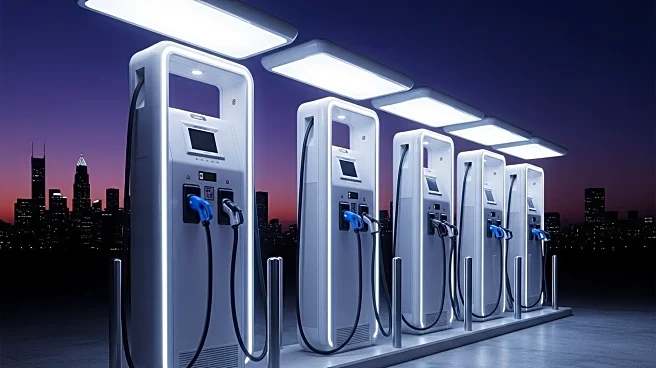What's Happening?
Ford Motor CEO Jim Farley has projected a substantial decline in the demand for all-electric vehicles (EVs) in the U.S. following the cessation of federal tax incentives. The tax credits, which provided a $7,500 consumer incentive, are set to end, and Farley anticipates that this will reduce EV sales from a market share of approximately 10% to 12% to about 5%. This prediction was made during a Ford event in Detroit focused on promoting skilled trades and workers. Farley noted that the industry is learning that partial electrification, such as hybrids, is currently more acceptable to consumers. Ford's Model e EV team is actively analyzing the demand for non-gas-powered vehicles, with the company offering several all-electric models, including the F-150 Lightning pickup and Mustang Mach-E crossover.
Why It's Important?
The anticipated drop in EV sales could have significant implications for the U.S. automotive industry and its transition towards electrification. The removal of federal tax incentives may slow down the adoption of EVs, impacting manufacturers who have invested heavily in electric technology. This shift could also affect consumer behavior, as the financial benefits of purchasing EVs diminish. The broader impact on environmental goals and emissions reduction targets could be substantial, as a slower transition to electric vehicles may hinder efforts to decrease reliance on fossil fuels. Additionally, the change may influence policy discussions around future incentives and support for sustainable transportation.
What's Next?
As the industry adjusts to the end of tax credits, manufacturers like Ford will need to reassess their strategies for promoting EVs. This may involve increased focus on hybrid models or exploring alternative incentives to attract consumers. Policymakers may also face pressure to introduce new measures to support the EV market and maintain momentum towards environmental targets. The coming months will be crucial in determining how the market adapts and whether consumer demand for EVs can be sustained without federal incentives.









